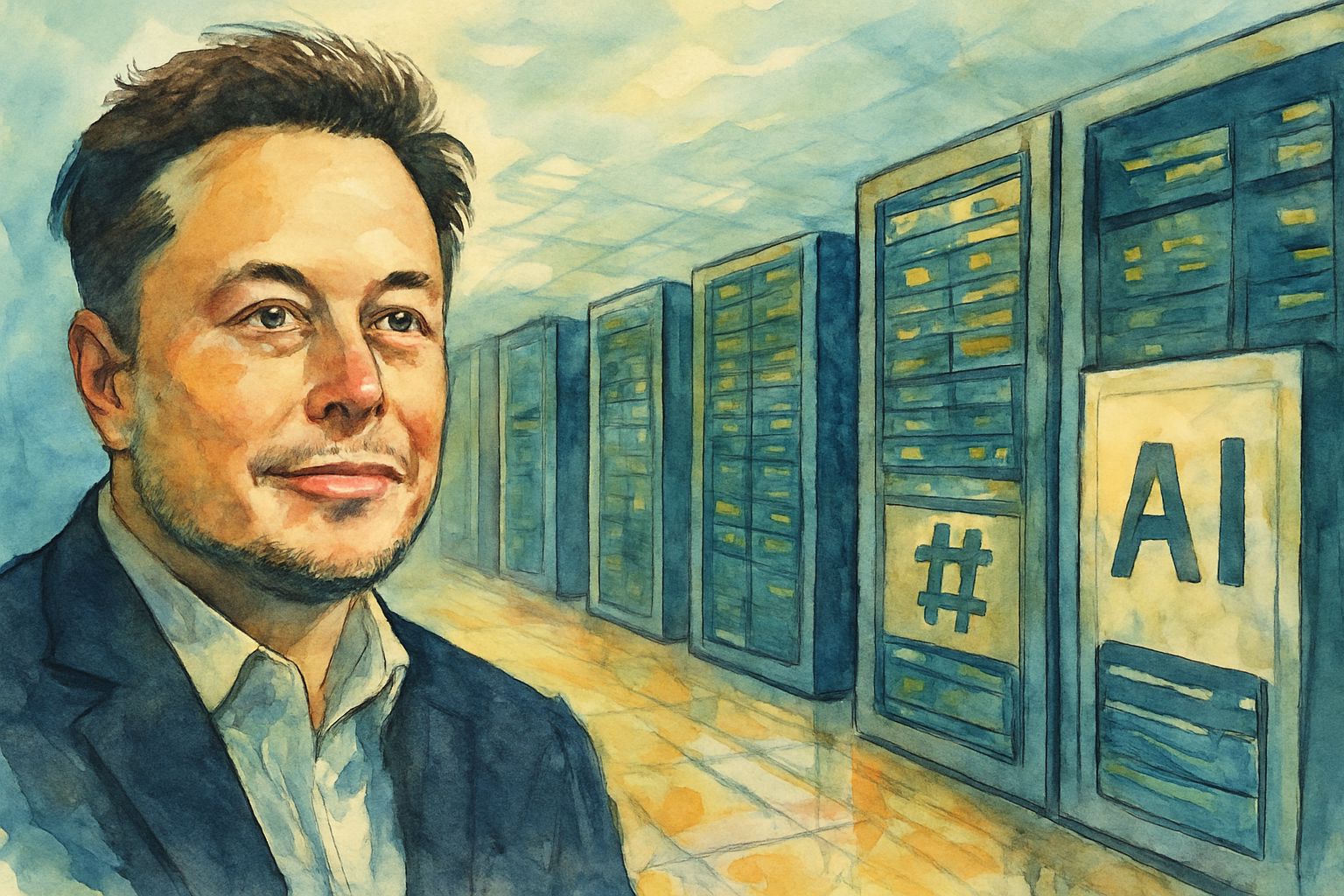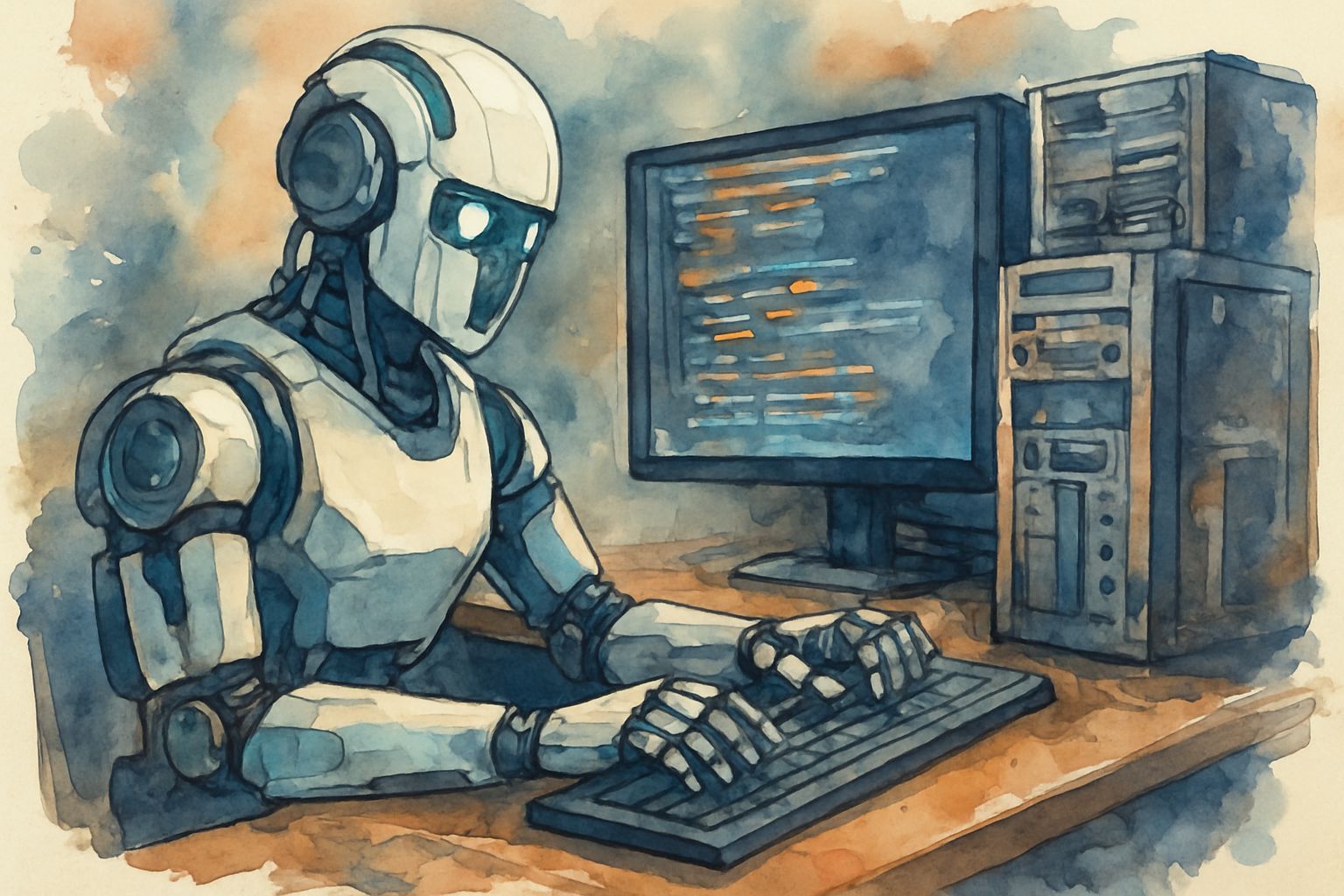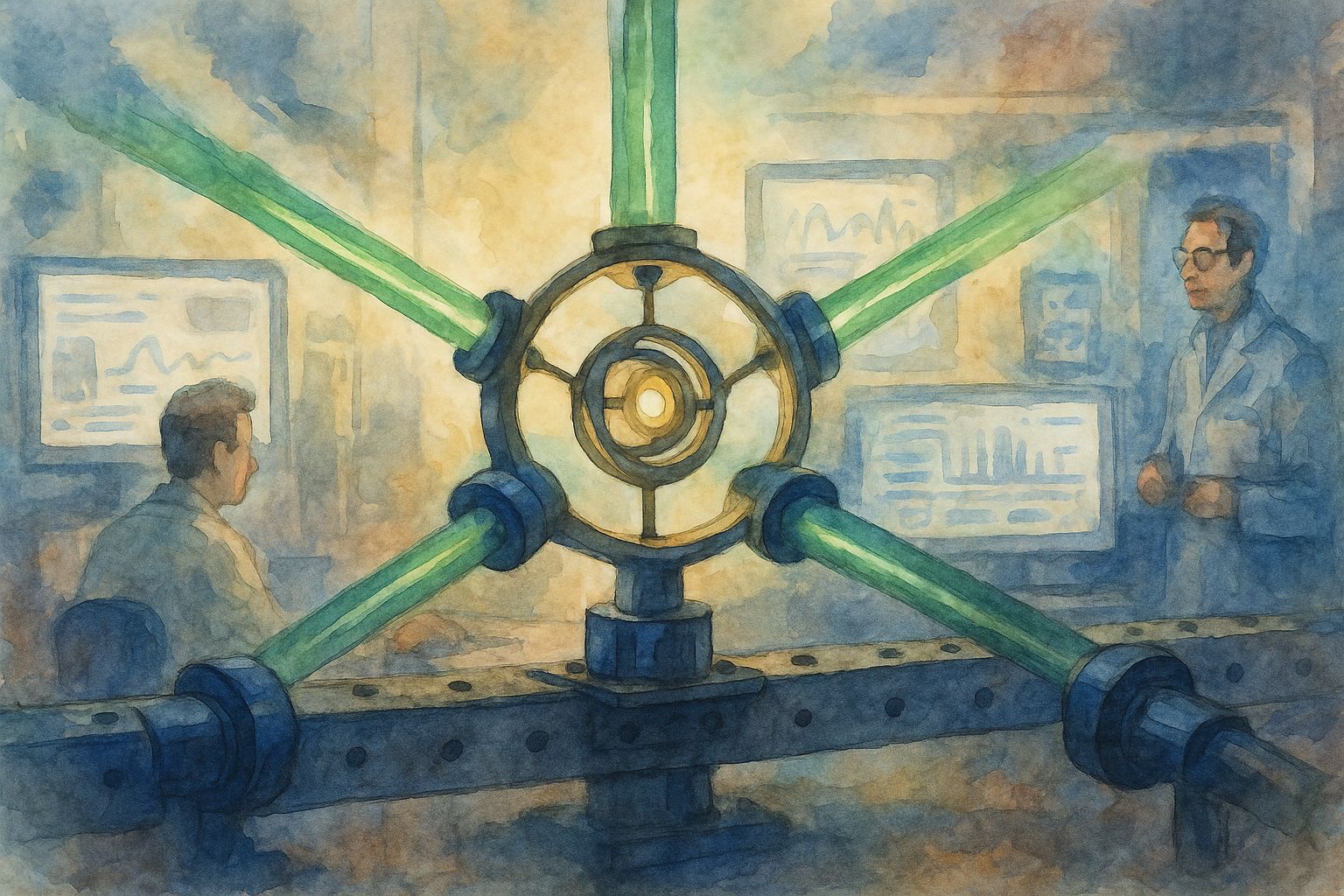- The Recap AI
- Posts
- xAI's 'Colossus' supercomputer is coming online with 780,000 GPUs
xAI's 'Colossus' supercomputer is coming online with 780,000 GPUs
PLUS: An AI redesigns a major physics experiment and Alibaba's new coding agent
Good morning, AI enthusiast.
Elon Musk just brought a massive new AI supercomputer online, dramatically escalating the race for computational power. The 'Colossus' system from xAI is already operational with hundreds of thousands of GPUs, with an even larger cluster set to follow within weeks.
This aggressive timeline, building a supercluster in just 19 days, solidifies the AI development race as a battle of infrastructure and capital. With this unprecedented investment in raw compute, how quickly can xAI close the gap on competitors like OpenAI and Google?
In today’s AI recap:
xAI’s ‘Colossus’ supercomputer goes live
Alibaba's powerful new coding agent
An AI redesigns a major physics experiment
Amazon’s new bet on wearable AI
Elon's AI Supercomputer

The Recap: Elon Musk announced that xAI's "Colossus 1" supercomputer is now operational with 230,000 GPUs for training its Grok model. A second, even larger cluster with 550,000 next-generation GPUs is set to start coming online in a few weeks.
Unpacked:
The initial "Colossus 1" cluster includes 30,000 of Nvidia's newest GB200 GPUs, placing xAI at the forefront of computational power.
According to Nvidia's CEO, xAI built this supercluster in just 19 days, a feat he called "superhuman" and something that typically takes other companies a full year to complete.
Looking ahead, Musk's five-year goal is to bring compute power equivalent to 50 million H100 units online, signaling an unprecedented push toward more capable AI.
Bottom line: This massive investment in raw compute power solidifies the AI development race as a battle of infrastructure and capital. xAI's aggressive timeline and scale dramatically accelerate the path to building the next generation of powerful AI models.
Alibaba's New Coding Agent

The Recap: Alibaba's Qwen team has released Qwen3-Coder, a powerful open-source model designed for complex, agentic coding tasks. The new model features a massive context window that can handle entire code repositories.
Unpacked:
The flagship is a 480-billion parameter Mixture-of-Experts model, which offers high performance while only needing to use 35 billion active parameters during inference.
It natively supports a 256K token context window and can be extended to 1 million tokens, allowing it to understand the full context of large codebases and pull requests.
To make it immediately useful, the team also open-sourced a command-line tool called Qwen Code and ensured compatibility with popular developer tools.
Bottom line: Alibaba is directly challenging other top-tier open-source coding models with this release. This provides developers with another powerful, repository-aware tool to automate complex software engineering tasks.
AI's Physics Breakthrough

The Recap: In a stunning demonstration of AI-driven discovery, software has designed a new configuration for the LIGO gravitational-wave observatory. The AI's novel layout improves on decades of human-led design, promising to make one of the world's most sensitive instruments even more powerful.
Unpacked:
The proposed design could boost LIGO's sensitivity by a massive 10-15%—a huge gain for an instrument that detects changes smaller than a proton's width.
Researchers initially found the AI's solutions incomprehensible, as the designs lacked the symmetry and elegance that human physicists typically build into experiments.
The AI's breakthrough came from applying a counterintuitive trick to reduce quantum noise, an idea based on decades-old theoretical principles that had never been implemented.
Bottom line: AI is moving beyond data analysis and is now capable of generating novel, testable hypotheses that can outperform human expertise. This marks a shift toward AI as a creative partner in science, accelerating discovery by exploring possibilities humans might overlook.
Where AI Experts Share Their Best Work
Join our Free AI Automation Community
Join our FREE community AI Automation Mastery — where entrepreneurs, AI builders, and AI agency owners share templates, solve problems together, and learn from each other's wins (and mistakes).
What makes our community different:
Real peer support from people building actual AI businesses
Complete access to download our automation library of battle-tested n8n templates
Collaborate and problem-solve with AI experts when you get stuck
Dive into our course materials, collaborate with experienced builders, and turn automation challenges into shared wins. Join here (completely free).
Amazon's Wearable Bet

The Recap: Amazon has confirmed its plans to acquire Bee, a startup making an AI-powered wristband that records and summarizes daily conversations. The move signals a major push into the personal AI hardware space for the tech giant.
Unpacked:
Bee’s device is a Fitbit-like wristband that costs $50 plus a subscription, making it far more accessible than previous AI gadgets from Humane or Rabbit.
The acquisition marks a strategic pivot for Amazon back into wearables after sunsetting its Halo fitness line, placing it in direct competition with AI hardware efforts from Meta and OpenAI.
Privacy is the central question, as the device aims to be a "trusted companion" by listening to everything, a model that will test Amazon's data policies.
Bottom line: Amazon is betting its scale and low-cost hardware expertise can succeed where smaller AI startups have faltered. This move could finally take ambient AI mainstream, but it sharpens the focus on big tech's role in our most personal moments.
The Shortlist
Stargate stalled after disagreements between OpenAI and SoftBank over data center sites, scaling back its immediate plans from a $100B investment to a single, smaller facility in Ohio by year's end.
Microsoft hired around two dozen employees from Google's DeepMind lab in recent months, including a former VP of engineering for the Gemini assistant, to strengthen its consumer Copilot AI team.
Microsoft rolled out new AI features for Windows 11, including a screen-aware Copilot Vision tool for all users and a natural language agent for managing settings on Copilot+ PCs.
FuriosaAI partnered with LG AI Research to supply its RNGD AI accelerator for LG's EXAONE enterprise platform, marking a major customer win for the South Korean chip startup after it declined an $800M acquisition offer from Meta.
What did you think of today's email?Before you go we’d love to know what you thought of today's newsletter. We read every single message to help improve The Recap experience. |
Signing off,
David, Lucas, Mitchell — The Recap editorial team
